Participating in the Africa Food Systems Forum 2024
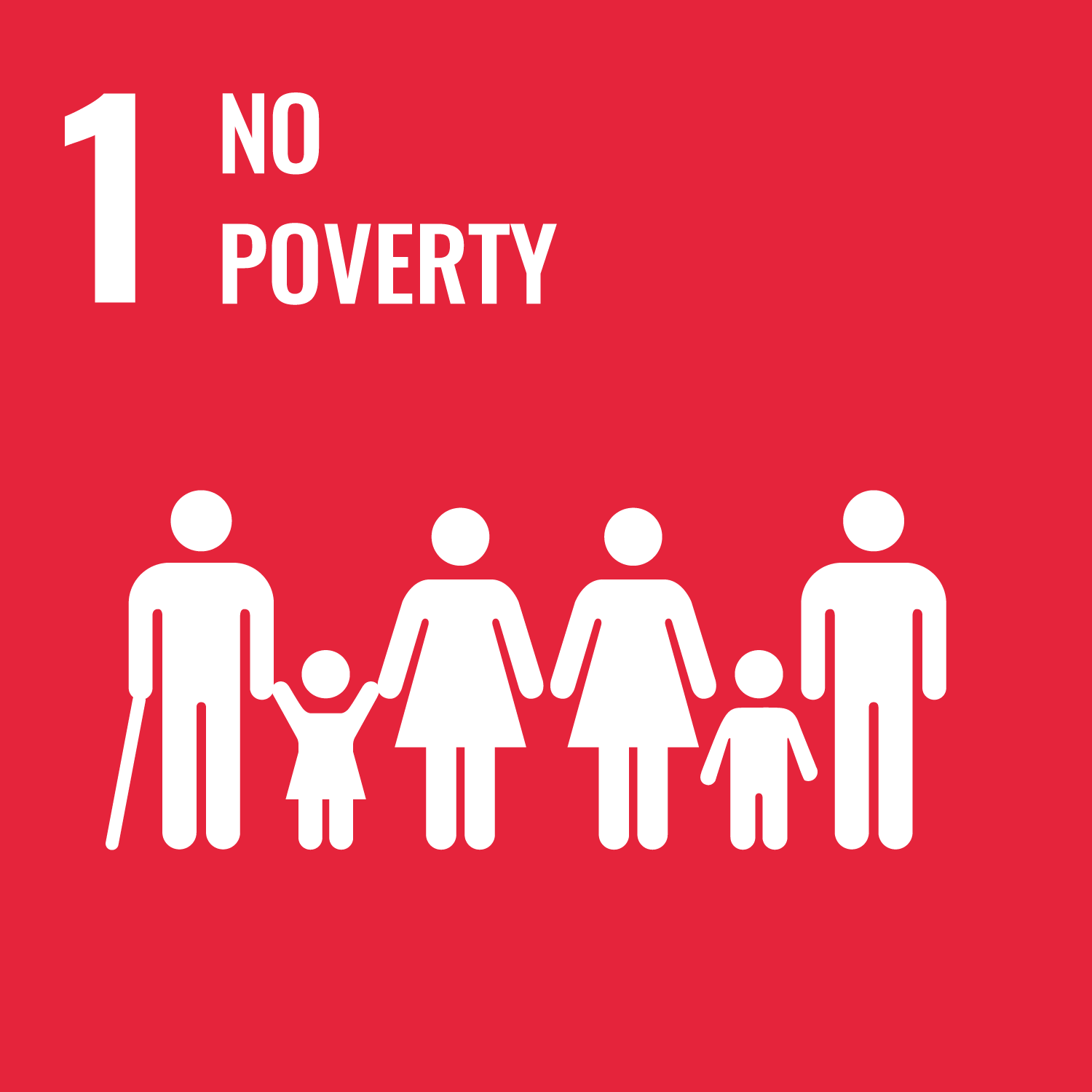
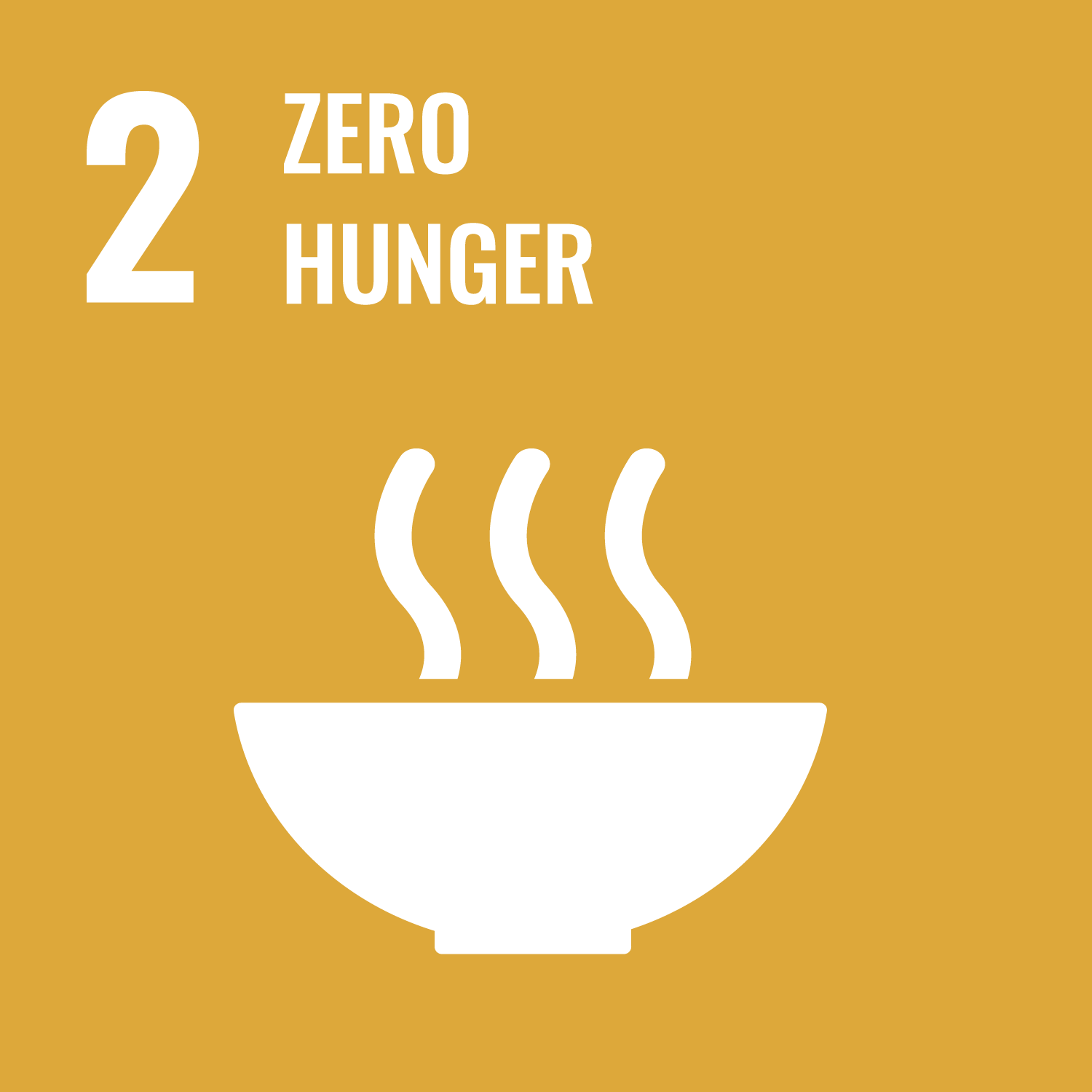
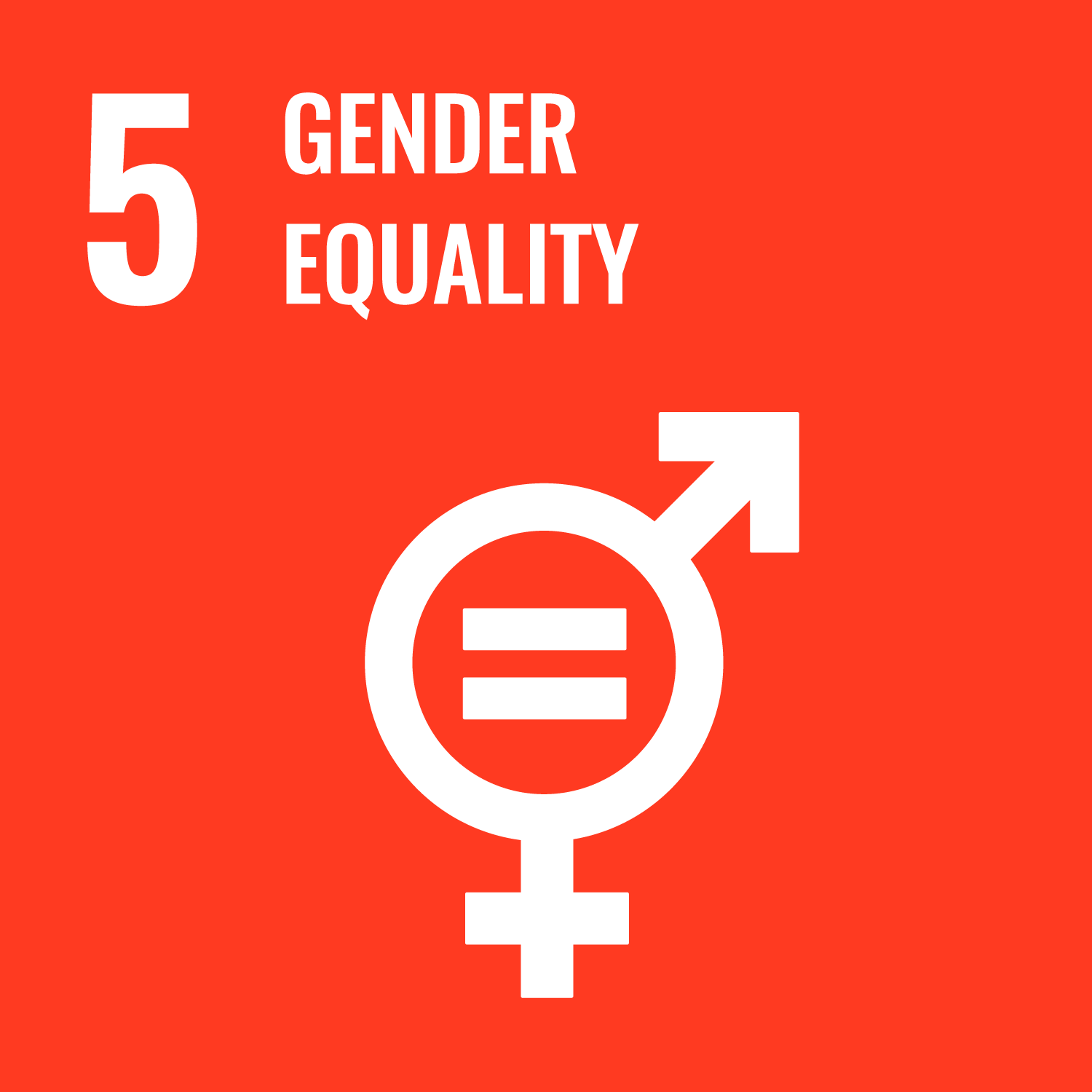
2025.06.30
-
- Fumihiko Suzuki, Former senior director, Economic Development Department (currently, senior representative, Kenya Office)
In September 2024, I participated in the African Food Systems Forum held in Rwanda. The term “food system” refers to the entire process of food production, processing, distribution, consumption and disposal, as well as their social and environmental impacts, and is frequently used in agricultural policy and international development in recent years. Here, I will introduce the discussions at the forum and JICA's related initiatives.
In September 2024, I took part in the African Food Systems Forum, which was held in Kigali, the capital of Rwanda. Around 5,000 people from all over the world took part in the five-day event. I only attended the first and second days of the program. The theme of the 2024 event was “Innovate, Accelerate and Scale: Delivering food systems transformation in a digital and climate era”. There were lively discussions on a wide range of topics, in various formats, including plenary sessions, side events, country-specific pitches and consultations from African countries, and TEDx Talks. The event was attended by many African government officials, private companies, and aid workers, and it was also a good opportunity for exchanging opinions and networking.
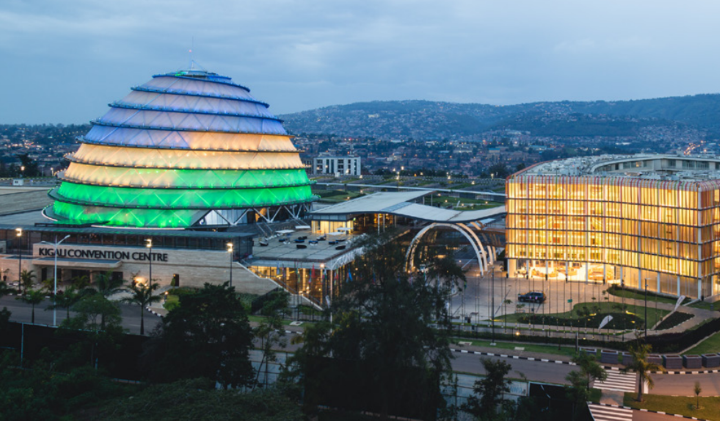
Kigali Convention Center, venue of the Forum (from the Forum report)
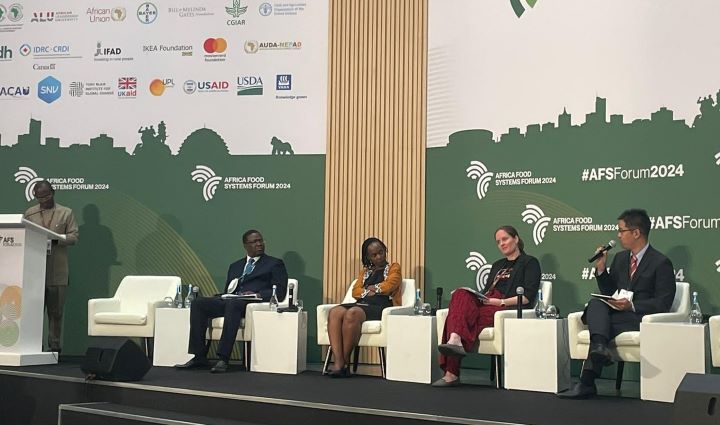
Side event at which the author spoke
The concept of a “food system”, which is also the title of the forum, has been used frequently in agricultural policy and international development since the United Nations Food Systems Summit in 2021. A food system refers to the entire process of food production, processing, distribution, consumption and disposal, as well as its social and environmental impacts. It is a concept that places more emphasis on social impact than the food value chain, which focuses on economic activities from production to consumption. In order to address the complex issues of our time, such as hunger and malnutrition, climate change and environmental degradation, it is necessary to improve the entire food system, and in Africa, where the severity of these issues is particularly high, there is a need for “sustainable and resilient food systems.”
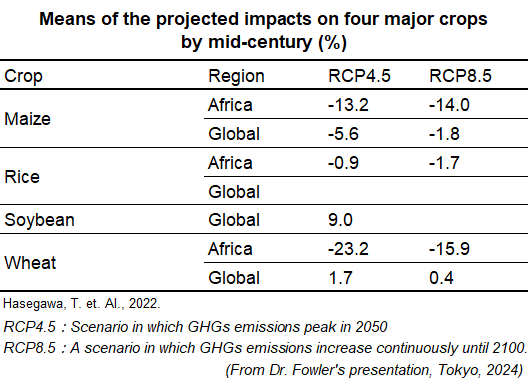
The report compiled by the forum organizers (published online in November) confirmed the following as the results of the forum: (1) the introduction of agricultural technology to respond to climate change, (2) the promotion of youth and women's leadership, (3) the revitalization of intra-regional trade, and (4) the strengthening of investment initiatives for small-scale farmers and SMEs. It also reconfirmed the importance of (5) improving soil health and utilizing digital technology, and (6) specific policy proposals and partnerships.
The concept of the food system is very broad, but the points raised in the report are things that many people are already working on. However, by considering the entire system, it has become clearer which things we should be more aware of in terms of their interrelationships (e.g. production and processing or distribution, or production and environmental impact (climate change), production and social impact (gender)), and which things we should be strengthening our efforts on. At the side event I took part in, “Scaling Investments for Rice Self-Sufficiency”, we discussed the activities needed to enable sustainable and marketable rice production in West Africa, where rice is a staple food for many people. In this context, JICA introduced the importance of and JICA's initiatives for stabilizing water supply, agricultural insurance, and the supply of high-quality rice seeds to reduce the risk for producers, as well as the financing to the buyers.
JICA has also been implementing various initiatives in relation to the points raised in the report. Measures to address climate change in the agricultural sector are being implemented in most of the projects. In fact, in the Sub-Sahara African, 85% of JICA's agricultural projects are engaged in activities that contribute to climate change action. Specifically, this includes efficient irrigation water management, the introduction of varieties that can be cultivated even under the effects of climate change, and guidance on farming plans and methods that reduce the effects of droughts and floods. In addition, in October 2024, the “Strategy for Addressing Climate Change in Agricultural and Rural Development Cooperation” was created and released. This strategy document has six pillars, including the development of climate change impact assessment tools, the promotion of climate change adaptation and mitigation measures, and the monitoring and sharing the status of actions. We will continue to focus on climate change measures in the agricultural sector in line with this strategy.
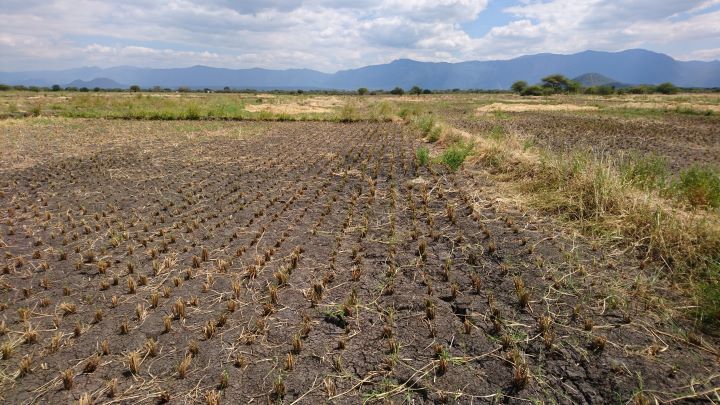
Rain-fed rice paddy field in Tanzania. By building ridges, the water retention capacity of the field is increased,
One of the points raised in the report was the issue of women's leadership. A number of JICA agricultural projects are working on this issue, for example, the rice farming projects in Tanzania (TANRICE) are said to be a good example of this. Through the preparatory survey, it was found that women were responsible for more than 60% of the agricultural work, and from the project that started in 2001, half of the participants in the rice farming training have been women, and additional training programs on gender have also been implemented. By having both men and women participate, and also by providing training in household budgeting and financial management, the project has had a positive impact on both rice production and local communities, as husbands and wives discuss household finances together and work together.
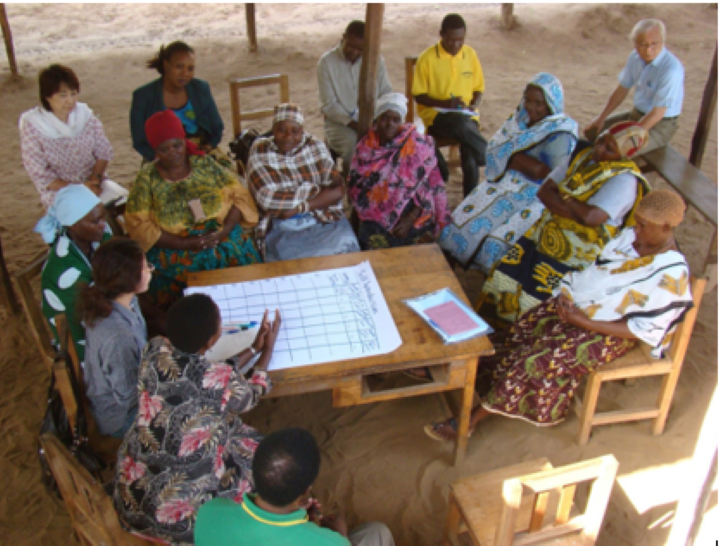
Gender training (photo provided by Dr. Yumiko Tanaka)
At this forum and other agricultural sector conferences, it is said that the key to strengthening food systems is implementation. By grasping and analyzing the entire food system, being aware of the relationships between its various elements and their social and environmental impacts, and clarifying the areas where efforts should be strengthened, while making the necessary revisions to JICA's past support experience, we would like to contribute to solving the difficult issue of “strengthening sustainable and resilient food systems” through the implementation of specific projects in cooperation with the government and other aid organizations.
scroll